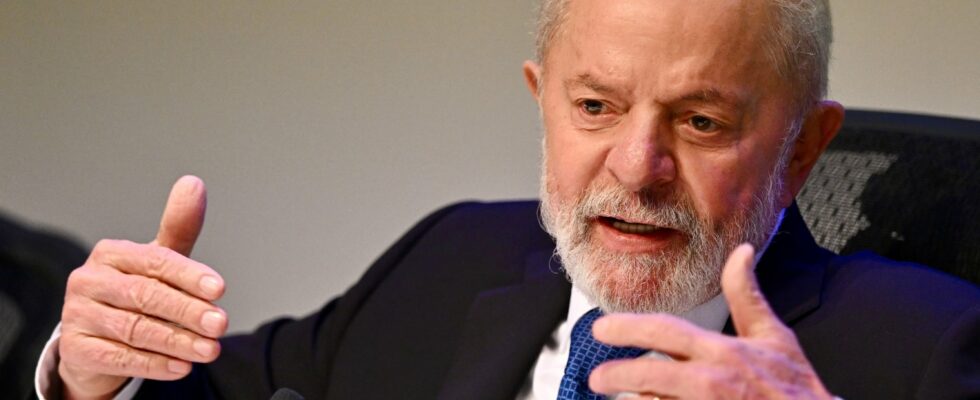The leaden silence, the prerogative of authoritarian regimes, has just ceased to exert its unbearable weight. The Venezuelan people are up in arms against the one who is trying to steal their voice. Nicolas Maduro has nevertheless tried everything to hold on to power, the day after July 28. Declared the winner, with 52% of the vote, by the National Electoral Council – without the latter, to date, having given the details of the votes, the Chavist leader then initiated proceedings before the Supreme Court of Justice to have his victory recognized. However, the opposition has published the minutes through its scrutineers. Edmundo González Urrutia, the opposition candidate, is said to be the winner with 67% of the vote.
As a result of these shenanigans – denounced each time by the opposition – the people took to the streets. To which the dictator opposed the Bolivarian National Guard – a military body responsible for enforcing public order – causing the death of 25 people and the arrest of 2,400 others. In parallel, Maduro has relied on his legislative arsenal. At the moment, Parliament is studying a series of liberticidal laws to cover, once again, the Venezuelan sky with this same soundproof leaden blanket.
But before Venezuela could once again fall silent, cries of protest crossed the borders of its closest neighbors. Brazilian President Luiz Inácio Lula da Silva, known as Lula, took up the issue on August 15. In an interview with local Brazilian radio Radio Tfrom the Brazilian state of Paraná, the head of state said that Maduro “could […] call and schedule elections.” “It [NDRL : Nicolas Maduro] knows that he owes an explanation to Brazilian society and to the world,” he added, while specifying that he did not “yet” recognize the victory of the outgoing president.
The neighbors get involved
Like Lula, the Colombian president is also trying to put pressure on the Venezuelan dictator. “A political solution for Venezuela that brings peace and prosperity to its people depends on Nicolas Maduro,” said on XGustavo Petro. The latter also takes up the proposal of his Brazilian counterpart, calling for “new free elections”. As a reminder, Bogota and Brasília have rather good relations with Caracas. For a time, the initiative of the two Latin American presidents seemed to be followed by the American president.
Joe Biden had answered “I am” to the question: “Are you in favor of new elections in Venezuela?”, during a short exchange with the press. The White House quickly corrected the shot, judging the victory of the opposition to be “very clear”. Through its spokesperson, it assured that the American president “mentioned the absurd position of the [président] Maduro” who is “not honest” about the outcome of the election.
The prospect of new elections has not been well received by members of the Venezuelan opposition. “To propose ignoring what happened on July 28 is, for me, a lack of respect for Venezuelans […] “Popular sovereignty is respected,” said María Corina Machado – opposition leader – during a virtual press conference with Chilean and Argentine media on August 15. The election “took place and Venezuelan society expressed itself in very unfavorable conditions. There was fraud and we still managed to win,” she added.
“Free elections”, a solution that does not have unanimous support
As for holding new elections, Brazil – through Lula’s international affairs advisor – is proposing a strong presence of international observers. These elections would have to be subject to “significant, solid and robust verification, but this would also imply a lifting of sanctions” by the European Union so that its observers are invited there, judged Celso Amorim, who had been sent to Venezuela to follow the electoral process.
A proposal that Gustavo Petro supports in his own way, proposing the removal of “all economic sanctions” targeting Caracas. In April, the United States had reestablished sanctions on Venezuelan gas and oil considering that “the Chavista regime had not kept all its promises regarding the holding of free elections in the country”, reports The Country – warning signs of the current crisis.
During the vote, four foreign observers – sent by the United Nations – were sent to report on the electoral process. Before the publication of their preliminary report, Jorge Rodríguez – president of the National Assembly – had called them “scum”. On August 15, the unicameral chamber adopted the law regulating NGOs and associations. Among the points of the text, the obligation for NGOs to notify their “funding” and “donors, national or foreign”, or the prohibition of “receiving financial contributions intended for organizations with political aims”.
Faced with the agitation abroad over the situation in his country, Nicolas Maduro declared: “The conflicts in Venezuela […] are resolved between Venezuelans, with their institutions, with their law, with their Constitution.” The president also did not want to react to the statements of his counterparts: “We do not practice microphone diplomacy. Each president knows, each state, each country knows what it must do with its internal affairs.”
